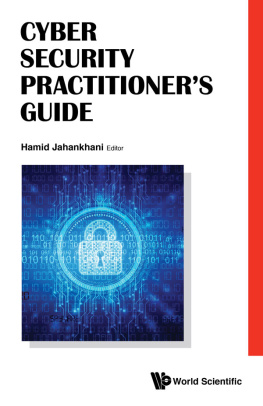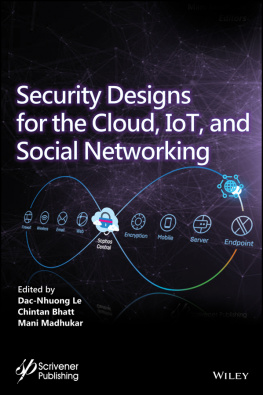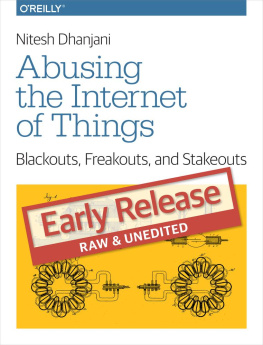Computer Security
Written by: Michael La Del Carter
Computer Security
You awake to the combination of alarm clock buzzer and radio as your alarm clock strikes 6:00am. With reality and the new day, all a tired and sleepy blur, great you with the sun casting forth its warm and gentle glow through your bedroom window you stretch forth your arm from beneath the warm blankets to hit the snooze button.
You climb slowly out of bed. Your first urgent thought of the day rushes to a reminder that you wrote yourself the night before on a note stuck to your refrigerator door the night before and it reads Important, check email for confirmation import and export meeting scheduled at 2:30pm today with the sales committee at work. You jump from your bed.
You jump into the shower, brush your teeth, put on your work clothes, and comb your hair. Before you fix breakfast you rush to your computer located in your home office and begin going through your emails. As you scroll through your emails you notice an email from what looks like a reputable real estate company you were recently researching; it is that youre planning to move to a new school district next year is Jr. High for your son.
As you open the email you notice that homes are in an area you prefer and they are being offered on the courthouse steps for what they cost in property tax for the year. There is a form. You fill it out. You give your name, age, current address, current employer, number of people in your family, your social security number for a credit check, and your date of birth. You see it all as harmless. Once the form is filled out a message appears that an agent will contact you in a day. Then you return to your confirmation email.
What you did not know based upon mere appearances is that your email from the real estate company was a sophisticated attack by a hacker to gain your most personal information to begin opening bank and credit card accounts in your name, purchase property, and monitor your credit rating as well as take control of your computer system. The design is called malware a malicious URL.
A URL is an electronic address of a Web site that is hosted over the Internet. Malicious URLs are one of the most popular and illusive means of attack hackers use for just these purposes. The URLs are usually backed by malicious code. Code is a term used to define commands or programs written in a computer language designed to give a computer explicit instructions on how to behave and carry out computer sequences or processes.
Once you have interacted with the URL or Web site the prompts you are given are designed to be hidden in what these interactions are accomplishing to you the end user, however, the result is your actual cooperation in your own hack. There are 1 trillion Web sites hosted over the Internet and 1.5 billion cyber-attacks every four months and the odds of you never encountering a malicious URL or malware are extremely low.
Generally these attacks have one or a combination of purposes theft, fraud, copyright infringement, sabotage (the planting of Trojans or viruses or bots), taking control of your computer system, and personal attack (blackmail, to discredit, or exploitation etc.)
Technology is one of the most advanced sciences of our time. It is that technology is becoming ever more commercial from social media to business apps and blogs that are seemingly essential to our daily lives both personal and professional. Whether youre a 5 th grader or a senior citizen it is technology the Industrial Revolution that is becoming a necessity.
Science has come a long way since the home computing of the Commodore 64. Today, technology has the luxury of mobile platforms from smartphones, tablets, laptops, Macs and PCs technology is shaping us.
If one were to try and judge technology from a marketed perspective one would believe she has the perfect tool placed at her disposal with no hidden dangers. What is seen are features and apps, storage, and security not vulnerabilities?
Besides hacks, one has to worry about the way one handles technology. Author of Word of Mouse Ostrofsky, (2013) highlights this fact with surprising clarity
A lot of activities that people engage in online can damage their reputation in a heartbeat. Take these examples:
- Posting or emailing drunken parties
- Blogging details about a nasty divorce
- Recording rowdy videos on YouTube
- Posting names and photos from gay pride meetings
- Blogging about you companies internal matters
- Tweeting about a disgruntled customer
- Discussing workplace disputes on Facebook
- Seeking public opinion about business issues via email or online forums
Typically, most people maintain a minimum of 50 friends on Facebook, Twitter, Instagram, and MySpace. As of the writing of this article the 2016 Presidential elections are the topic of social median and mobile media forums. Political propaganda is being shared, discussed, and evaluated. Emotions are running high and the atmosphere is charged. What is happening is that people are creating a political reputation that will stay on the Internet for the life of it.
The tragedies of suicide and hazing are just a few drawbacks to the social media and mobile media stage and it is the human factor, which we will talk about a little later, of computing that also bears a great deal of weight as to what we fall victim of and how much security we have.
What happens when a vegetable garden becomes a haven for Adders, Scorpions, Africanized Killer Bees, and Jackals? The owner makes war on the invaders ruining her produce! It was the military who developed the Internet and not for a whole slew of purposes it is being used for. The Internet became public with the hopes that its speed, connectivity, and resources would make for better opportunities for business, education, and personal computing. The Internet today is known by the military as the fifth domain of war. The first four are of course land, air, sea, and space.
In 2006, the United States of America suffered a loss of highly classified military design and technical information that could very well shape the outcome of war in the future for the U.S. Whos done this? Where did this take place? What was the purpose? How did it happen?
It was known that it was China. According to the author of the fascinating and enlightening book @ war: The Rise of the Military-Internet Complex Harris, (2014)
For decades China had waged an aggressive campaign of espionage against the U.S. Armed Forces, its most formidable adversary. Beginning in the late 1970s, China with its agents working in or visiting American Universities, government research labs, and defense contractors made off with design information about weapons systems, including nuclear weapons.
The F-35 was the target. The cost to replace one was at the time a whopping $337 Billion dollars. Instead of hacking into the U.S. networks the Chinese hacked into the defense contractor for the U.S. Lockheed Martins network who was the hired contractor for the F-35 and stole the designs from their computers.
One thing is for sure this event and others similar to it has constituted that among all that it is doing the Internet is now a battlefield. The National Security Administration (NSA) has formed groups like the Tailored Access Operations Office (TAO) to conduct its own Internet espionage operations. Working closely together with the Central Intelligence Agency (CIA) is the NSA and its group the TAO. Remember, there are always casualties when it comes to war.
The enemy is among us. The Internet is the battleground where threats against citizens, banks, and power grids are realities. How we utilize technology will become more important as we face threats from terrorist organizations, crime rings, and nations.
Next page





